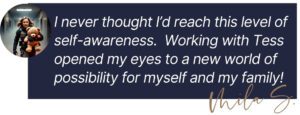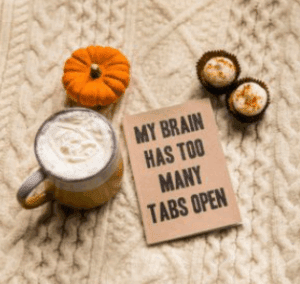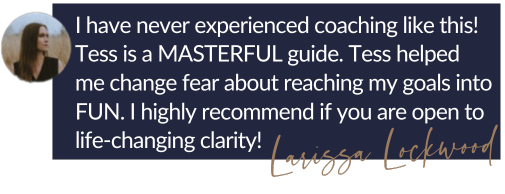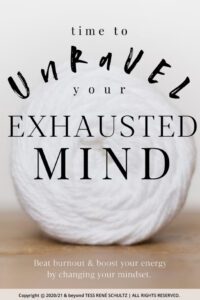Why Am I So Indecisive? You’ve found a Foundation Guide to Core Beliefs & Schemas, here to uncover hidden patterns about decision-making and make choices with clarity.

Hidden beliefs shape our choices more than we realise. This core guide helps you uncover and shift the schemas that quietly drive your life.
“Why am I so indecisive?” is a question we all ask. If indecision, limiting beliefs, or fear of getting it wrong are strong patterns for you, deeper examination will help.
Indecision creates a desire to give up and limiting thought patterns. We get stuck believing there’s a right answer and that more effort will reveal it.
In truth, there is rarely a “right” choice and no amount of hard work creates one.
In this article, you’ll learn how to:
-
Lean into what’s preventing a choice
-
Redefine what a decision is
-
Use new strategies when you feel stuck
Table of Contents
Revealing Deeper Patterns

When a vending machine feels overwhelming, it’s a clue indecision runs deeper.
“…the overwhelm is from a fear of regret, not the indecision itself…”
Why Am I Indecisive When the Stakes Are Low?
When even a vending machine and small decisions feel overwhelming, indecision is running deeper. It is not truly about the snacks but about the fear of choosing wrong and regretting it later.
That small moment often mirrors the larger struggles underneath: the pressure to be perfect, the fear of judgment, or the belief that one choice could define your worth.
-
We think every step is risky.
-
We catastrophize the outcome of our choices, freeze, and avoid deciding.
-
We fear what people will say or think.
-
We fear failure if we choose wrongly, so we do nothing instead.
-
We think circumstances reflect our value.
-
We try to “control” life by never making a mistake.
Many of these fears come from core beliefs like: “If I fail, I’ll lose love” or “My worth depends on making the right choice.”
Chronic overthinking makes even the simplest choices exhausting. We vacillate endlessly, take polls from others, and collapse with regret after finally choosing.
Either way, outcomes, which we can’t control, begin to dictate our self-worth.
The Science Behind Indecision

Core beliefs often pull us in two directions at once, no wonder we’re indecisive.
“When we insist on a right answer, our brain scans tirelessly for something that may not exist.”
Why Am I Indecisive and Exhausted by Overthinking?
Indecision is often the brain’s (unhelpful) way of creating safety. When faced with uncertainty, your nervous system goes on alert, scanning for danger or looking for problems.
The mind believes that if it can analyse every option long enough, it might prevent mistakes, avoid rejection, or guarantee a perfect outcome. In reality, this constant searching doesn’t create safety it traps you in hesitation and keeps you from moving forward.
Why Am I Indecisive Even When I Know the Answer?
-
Constant indecision is a survival strategy. If a choice feels anxious, the brain reads danger and searches for the “right” solution to prevent harm.
-
When we insist there must be a right answer, our brain scans endlessly for something that may not exist.
Unless it’s an actual emergency, this primal response only creates stress. Yes, we’re alive but we’re also completely worn out.
When Insight Isn’t Enough
Understanding the science explains why you get stuck, but freedom, happens in working together.
Become one of my many clients who have learned how to choose without fear, pressure, or second-guessing.
✦ Make Clear, Confident Decisions ✦ →

Beliefs That Block Decisions

Core beliefs are beneath the surface, shaping every choice, causing indecision.
“Indecision feels safer than testing the fear of rejection.”
Core beliefs are the deep, often unconscious convictions we form early in life. They’re not fleeting thoughts, they’re bedrock stories shaping every choice.
How Core Beliefs Form and Take Hold
Core beliefs begin in childhood through repeated messages like:
- Mistakes aren’t allowed,
- love depends on performance,
- your ideas are “wrong.”
- You have to be accepted to belong.
Over time, these become internal rules:
- “If I make the wrong choice, I’ll be rejected.”
- “I can’t trust myself to know what’s best.”
Why Am I Indecisive in Relationships and Work?
This is where hidden beliefs hit hardest. If your core story says: “My worth depends on performance,” then choices at work and in relationships feel dangerous. Saying yes or no to a project, setting a boundary, or sharing a preference with a partner can all trigger those old fears.
Indecision in these areas is rarely about the choice itself, it is about the belief underneath: “If I choose wrong, I’ll lose approval, love, or belonging.” Naming that belief is the first step toward loosening its grip.
How to Shift Core Beliefs and Create Freedom
The good news: core beliefs shift when you…
-
Notice the hidden rule you’re following
-
Question whether it’s universally true
-
Practise corrective experiences by choosing and surviving the outcome
-
Replace “I can’t trust myself” with “I’m learning to trust myself; every choice builds that muscle.”
Core beliefs don’t disappear overnight. But as you challenge them, you create new neural pathways and new freedom to decide without fear.
The Antidote to Doubt

Self trust grows through practice. Every small decision becomes proof you can rely on yourself.
“Notice moments when you already know what you prefer, and let yourself act on those values.”
A big part of decisiveness comes from self-trust, and the lack of it naturally breeds self-doubt.
If you grew up in an environment where your opinions were dismissed or your choices were constantly second-guessed, it can feel risky to believe in your own voice now.
Your early caregivers shaped not only how you make decisions but how safe it feels to make them. If you were encouraged to explore, decide, and even make mistakes, confidence grew naturally.
On the other hand, if love or approval felt tied to “getting it right,” your nervous system may still associate decisions with danger or rejection.
Learning to rebuild self-trust takes practice and starting small. Notice moments when you already know what you prefer, and let yourself act on those values.
What Weakens Self-Trust
If you weren’t taught how to value your ideas, you’ll find it difficult to trust your opinions, and feel unclear about decision-making.
To compensate, you’ll create the illusion of safety in unhelpful ways by:
-
Believing you can’t handle consequences
-
Waiting for a “magic bullet” answer
-
Assuming others would know better
-
Criticizing yourself harshly
-
Seeking permission before acting
So how can we reverse these habits and build new ways to safety? Yes…
How To Trust Yourself

When we’re indecisive self-trust reduces; here’s how to start believing your own choices again.
“A decision doesn’t define you, it’s an option that seems right at the time.”
Redefining Decisiveness
Take the pressure off by not asking why you are indecisive. Instead we can redefine what a decision is:
A decision doesn’t define you. It isn’t proof of your worth or a final judgment on who you are. At its core, a decision is simply a considered option and the best step you can see in this moment that helps you progress.
As a result, when you view decisions this way, the weight lifts. Choices stop being tests you must pass and start becoming tools you can use.
Each choice offers feedback and information rather than a verdict on your identity.
This perspective turns decision-making from a high-stakes exam into an everyday practice of trying, learning, and adjusting.
Common traps:
-
The “Right” Choice — There rarely is one. Trust your preferences.
-
Magic Bullet Thinking — Waiting for clarity keeps you frozen.
-
Other People Know Best — Desires are personal, not right or wrong.
-
Fear of Mistakes — Wrong outcomes don’t define your worth.
-
Permission Seeking — Waiting for approval reinforces doubt.
These are freeze responses that keep you stuck. Instead, remind yourself: you are allowed to choose, re-choose, and learn and re-build self-worth (sometimes a language change is all it takes).
Still hard to decide? →
For those times you need more BREATHING room.
This free mindset guide shows you detailed steps to achieving that.
✦ Unravel My Exhausted Mind ✦ →
New Strategies
Why Am I Indecisive About Simple Daily Decisions?
Often, indecision isn’t really about the decision it’s about distrusting your own wants. You may think: “If someone else were in my shoes, they’d know the right thing to do.”
But here’s the truth: everyone has different wants and desires. No one else has a more valid answer than you. Your desire isn’t wrong or less “right” it’s simply yours.
Learning to honour your desire is part of building freedom from indecision.
Mistakes Are Part of Being Human
A “wrong” choice isn’t a moral failure. It simply means the outcome didn’t give you what you hoped for. That’s not proof you’re flawed it’s just feedback.
Change your mind, try again, re-choose without judgement. Decisions don’t define you; they’re experiments in moving forward.
Permission vs. Self-Trust
Many of us wait for permission before acting. Each time, we reinforce the belief that we can’t move unless someone else approves. This creates more stuck-ness, not less.
These patterns are survival responses (flight or freeze) meant to keep us safe but in reality, they create helplessness, confusion, and impatience.
You don’t need permission. The act of deciding is the practice of freedom.
Below we’ll explore how to trust yourself again. These tips will help your brain realize that safety doesn’t happen if we’re frozen in indecision (the freeze part of the flight, fight, freeze mechanism).
Learning self-trust is the antidote to early core beliefs that taught us not to value our opinions and choices.
TRUST Changes Everything

Indecision softens when we see its link to self-trust, this is where freedom begins.
“People who trust themselves make as many “wrong” choices as people who doubt every choice…”
The Good News About Building Trust
Self-trust is not reserved for the bold or extroverted. It’s taught and you can learn it now.
-
People who trust themselves make just as many “wrong” choices as anyone else, but they don’t judge themselves for the outcomes.
-
No one has a crystal ball. Trust means believing you’ll handle what happens, not that you’ll always get it “right.”
-
Self-trust grows through practice: choosing, surviving the outcome, and carrying on.
This is why learning self-trust is the antidote to indecision.
How Self-Trust Transforms “Wrong” Choices
People who trust themselves make just as many so-called “wrong” choices as people who second-guess, self-sabotage, or doubt every decision. The difference isn’t in the number of mistakes it’s in how they respond to them.
When self-trust is strong, a disappointing outcome isn’t proof of failure. It’s simply feedback. A trusted self says: “That didn’t work the way I hoped, what can I learn here?” Instead of spiralling into blame or shame, they use the experience to refine their next step.
“Self-trust doesn’t erase mistakes, it changes the story you tell yourself after mistakes happen.”
Why am I Indecisive and don’t Trust Myself?
Those with shaky self-trust, on the other hand, take the same outcome and turn it inward: “This proves I’m bad at decisions. I can’t be trusted. I’ll probably mess up again.” That judgement reinforces paralysis, making every future choice feel heavier.
The truth is, both groups encounter setbacks. But one group grows through them while the other gets stuck replaying them. Building self-trust doesn’t erase mistakes it changes the story you tell yourself when they happen. It turns every choice, even the messy ones, into part of your learning curve instead of another mark against you.
1. Why am I Indecisive in Everyday Choices

“…course-correction is not failure, it is proof of you learning as you go.”
Treat Every Choice as Feedback
“How do I stop second-guessing myself?”
The truth is simple but powerful: every choice is feedback, not a verdict on your worth. Decisions are not moral tests or final judgments they are opportunities to learn, adjust, and keep moving.
Here are some tangible takeaways to practise when you feel caught in indecision:
-
Make a choice and let the outcome teach you. Even if the result is not what you hoped for, you will have real-world feedback that no amount of analysis could have provided. The learning comes in motion, not in endless reflection.
- View every choice as feedback, not a verdict on your worth.
Ask If There Really Has to Be a “Right” Choice
-
Ask if there has to be a “right” choice. Often, indecision arises from the belief only one perfect answer exists. In reality, life rarely works in black and white. Many paths can work and waiting for the flawless option only keeps you frozen.
-
Remind yourself you will be safe even if you do not like the outcome. Fear tells us that a single misstep could wreck everything. The truth is, you are far more resilient. Safety is built through your ability to respond, not through finding perfection.
Why Am I Indecisive – Re-Choose Without Shame
-
Allow yourself to change your mind. Flexibility is strength, not weakness. If you discover that something no longer serves you, you can shift course. Re-choosing is not failure it is proof that you are learning as you go.
-
Separate your worth from results. A decision that does not bring the outcome you wanted does not define your value. It is simply data. The more you practise viewing results neutrally, the freer you will feel to make choices without fear.
Loosen Your Grip
-
Loosen your grip and create space. Trying to control every possible outcome is exhausting. Life has always unfolded beyond our control. The more you soften your grip, the more breathing room you create for peace and perspective.
-
Project forward. Ask yourself how this choice will feel a year from now. Often, you will realise that the specific outcome matters less than the time you wasted worrying. Remembering this helps shrink the weight of the moment.
Indecision begins to soften when you treat choices as tools for growth rather than tests of worth. Each one builds resilience and self-trust, even when the results are imperfect.
Trying new decision strategies is how we disconfirm old core beliefs in real life showing the nervous system “I can survive this.”
2. Your Own Paradigm

When you write your own paradigm decisions feel clear because they’re rooted in your beliefs, not borrowed ones.
“…other people’s answers sound convincing, but they won’t fit your life … when you feel uncertain, count your choices in.”
Why Borrowed Paradigms Don’t Work
The way we do business, show up in relationships, define our values, attitudes, and boundaries; all of this creates the foundation of how we function in life. This is your personal paradigm. Everyone has one, and it naturally evolves as we grow.
The trouble comes when your paradigm is built on someone else’s standards, fears, or motivations. The beliefs that guide their life are not the same as yours, which means their paradigm will never truly fit you. You can admire it, even try to copy it, but it will always sit awkwardly if it doesn’t arise from your own values.
Cultural rules (in North America) can mislead us into thinking that if we: “Go to school, get good grades, earn a degree, work hard, and you’ll succeed.” we’ll be safe.
That story isn’t universally true and it doesn’t serve every personality type. Not everyone thrives by following that path, yet many of us unconsciously adopt it through perfectionistic means and judge ourselves when it doesn’t work.
Why Am I Indecisive and Compare Myself to Others?
Applied to decision-making, the same truth holds: other people’s answers might sound convincing, but they won’t necessarily fit your life.
By all means, listen to advice. But when you feel uncertain, count yourself in. Your preferences and desires matter as much as anyone else’s.
Paradigms are the lived-out expression of your core beliefs. If you don’t consciously write your own, you’ll end up living by someone else’s.
Questions to Build Your Own Rules
-
What rules do I want to live by?
-
What standards feel right for me, not just handed down or culturally expected?
-
What boundaries protect my energy and values?
When you write your own paradigm, choices feel clearer because they’re rooted in your beliefs, not borrowed ones.
The shift isn’t fewer mistakes, it’s refusing to turn them into self-blame.
3. Why Am I Indecisive? Curiosity
Another person’s Paradigm won’t fit you.
Yours is the only one with a perfect fit.
“Practising a curious mind-set lightens the load of the inner-critic.”
Why Curiosity Loosens the Knot
When you’re stuck in indecision, it’s tempting to judge yourself: “What’s wrong with me? Why can’t I just decide?” That inner critic makes the moment heavier, adding shame to the weight of the choice. The harder you push, the tighter the knot becomes.
Judgement convinces you there’s something flawed at your core, when in reality you’re simply caught in an old protective habit. It frames indecision as a personal failure instead of what it really is — a signal that deeper beliefs or fears are being stirred.
How to Ask Better Questions
Curiosity works differently. Instead of berating yourself, it invites you to pause and gently explore: “What’s underneath this hesitation? What belief is speaking here? What’s the story I’m telling myself about this choice?” By opening the door with curiosity, you bring light into the tangle, and the knot begins to loosen on its own.
Instead of berating yourself, curiosity invites you to pause and explore:
-
Is the paradigm I’m living by one I wrote, or one I inherited?
-
Does this belief still serve me, or has it expired it’s usefulness?
-
Is this belief keeping me small?
-
What’s the fear beneath my hesitation: loss, rejection, or making a “wrong” move?
Approach other people’s advice with the mind of an analyst: filter their opinions through your own values. Accept what fits, leave what doesn’t. Your preferences count just as much as anyone else’s.
Why Am I Indecisive? – Building Momentum Through Curious Action
Curiosity shifts the spotlight from “I’m broken” to “What belief is at play here?” That subtle change builds momentum for self-trust.
Sometimes action comes before belief. You may not value your opinions yet, but each time you honour them your mind learns they matter. Over time, self-trust grows stronger and indecision fades.
Try one experiment: choose something simple and decide without overthinking. Then notice how nothing catastrophic happens. This lived experience rewires your nervous system, proving that decisions are safe and that you are safe in making them.
Why Am I Indecisive – Your Questions Answered
Q1 – Why Am I Indecisive?
Core beliefs quietly shape how safe choosing feels. When those old voices whisper you’ll get it wrong, the body tightens and the mind spins through every option. Naming the pattern with kindness helps you step out of the loop and feel steadier in your choices.
Q2 – How do I start trusting my choices when I don’t know why I am indecisive?
Trust grows through many small safe decisions, not one perfect call. Start with something simple each day, notice how it feels in your body, and let the choice be done. With repetition, your nervous system learns that it’s safe to move forward instead of circling endlessly.
Q3 – Why Am I Indecisive? – What if I regret the wrong choice?
Regret is often perfectionism in disguise, telling you that mistakes aren’t allowed. But every choice gives feedback you can use for the next step, even the messy ones. Real self-trust comes from recovering kindly and moving forward again, not from avoiding errors.
“People with self-trust don’t fear mistakes — they learn and move forward.”
Ready to Build Trust in Your Choices? →
If you are Ready to stop circling in indecision…
This is exactly the work we’ll do together. In a private consult, we’ll begin to unravel the belief loops and find safe choices that build your confidence.
“Tess helped me finally trust myself after years of second-guessing.” – Corbett L.

